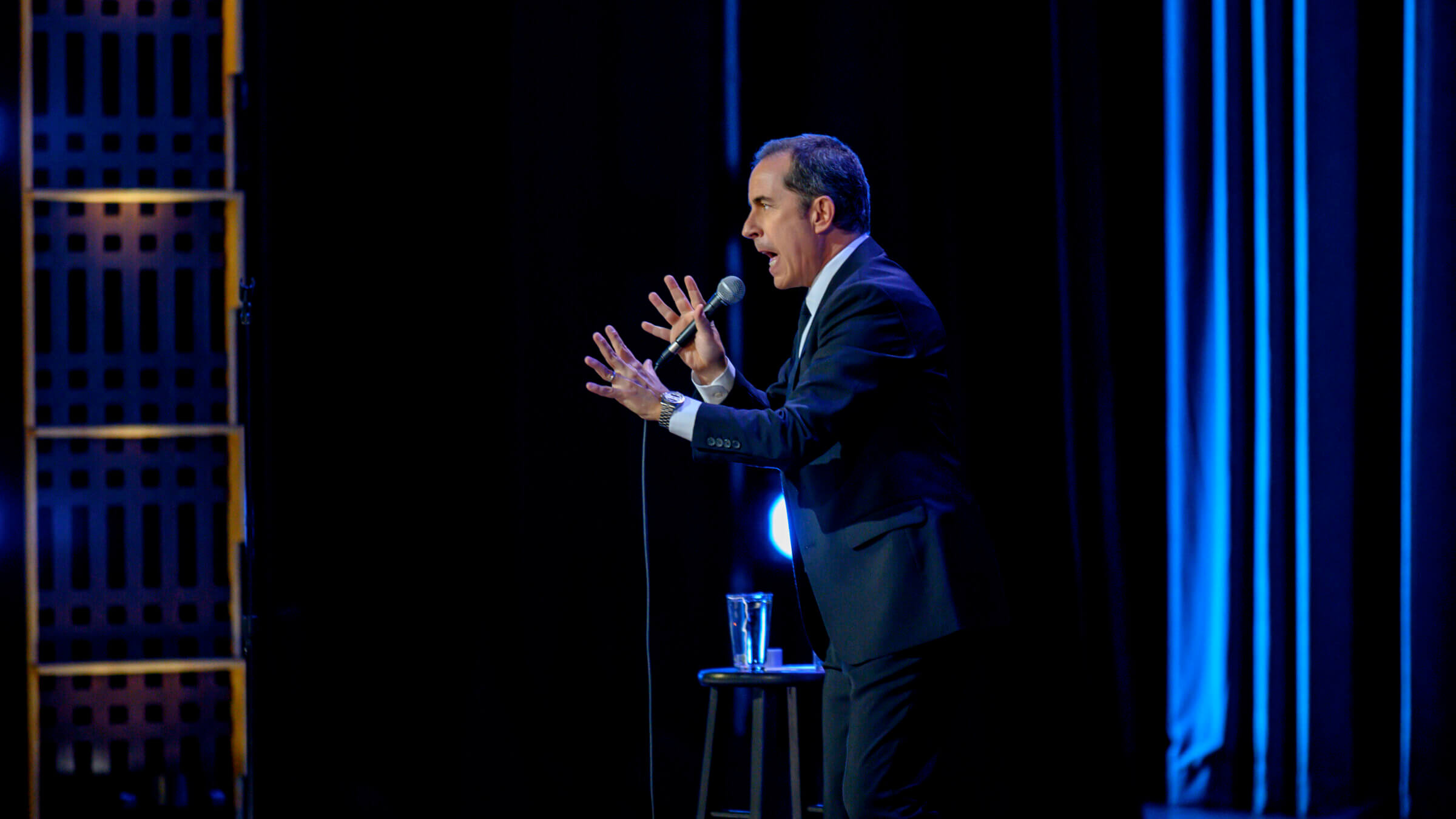In Seinfeld’s newest kvetch, a tale of two Pop-Tart jokes
Promoting ‘Unfrosted,’ the comedian lamented ‘PC crap’

Jerry Seinfeld said that network sitcoms lost their sizzle. Photo by Jeffery Neira/Netflix
Jerry Seinfeld, promoting his new film about a fictive arms race to invent toaster pastries, says they don’t make sitcoms like they used to.
On The New Yorker Radio Hour, the comedian lamented the bygone days of network monoculture, where people would flip on Cheers or M.A.S.H. or The Mary Tyler Moore Show. And, it goes without saying (it’s the subtext) that you couldn’t make Seinfeld today.
Somehow, in Seinfeld’s calculus, those sorts of shows didn’t die out because of a glut of cable channels or the advent of streaming (Seinfeld’s Unfrosted, along with his latest stand-up special and his eponymous sitcom, are all on Netflix) but because of the “extreme left and P.C. crap and people worrying so much about offending other people.”
Whenever Seinfeld — who kvetched about playing college campuses because of a bad response to a joke featuring a simile about a “gay French king” — wades into the culture war, it’s more than a bit bizarre.
Let me repeat for emphasis: Seinfeld was promoting a film that imagines the development of a rectangular pastry stuffed with processed strawberry goop as a breakthrough equivalent to the Apollo Program when he went on this, his latest rant against the cult of woke. In a recent interview with The Associated Press, he admitted that satire and social commentary is not his metier — consumer crap is, and crap like Pop-Tarts has a Proustian Madeleine quality for him. In other words, he’s never been one to channel Lenny Bruce, much as he liked the biopic.
Watching Seinfeld navigate these latest junkets, I couldn’t help but be reminded of Gary Gulman’s 2023 HBO special Born on 3rd Base, which has its own Pop-Tart bit that very capably delivers a social message.
While Seinfeld’s 2020 Pop-Tart joke, from whence his forthcoming feature film was drawn, imagines men in white lab coats splitting the atom of a balanced breakfast, Gulman, who was a poor kid in a school meal program when he first encountered Pop-Tarts, speaks far less glowingly of the product.
“The Pop-Tart was just a complete F-you to the poor kids who were eating it,” Gulman said. The school served one Pop-Tart (he knew they came in twos). Beyond that, the Pop-Tart frosting was not spread all the way to the edge. He imagines a factory worker suggesting they ice to the outer limits, to which a boss objects, “Do you want these kids to ever stop sucking on the government teat?”
“Everything about the Pop-Tart they did to screw with poor kids,” Gulman said, with the folks at Kellogg gaslighting the disenfranchised into believing their product in any way resembled a real tart while only having a “suggestion of a rumor of a whisper of fruit-flavored artificially colored schmutz.”
Gulman explained that “pop” stood for “populist” — the “poor man’s tart.” Meanwhile, Seinfeld celebrated the genius of its inventors, who he says knew their item “can’t go stale, because they were never fresh.”
Many now finding Seinfeld’s whining about political correctness to be yet another manifestation of his privilege would perhaps be interested in hearing Gulman’s more direct takedown of Seinfeld’s net worth. In a bit about income inequality Gulman wonders to his crowd if Seinfeld, valued at a billion dollars, is really “$999,911,000 better” than he is at comedy.
This last salvo could read like sour grapes, but if offense should be equal opportunity, Seinfeld can claim no exemption, even as his own solo comedy remains anodyne if occasionally tone-deaf.
To his credit, it doesn’t seem like Seinfeld is too bothered by Gulman’s act (at least he hasn’t commented on it publicly), but at least in this instance Gulman advanced the art, seeing in the humble Pop-Tart a bread of working-class affliction.
Gulman brought a real grievance. And unlike Seinfeld’s, it hasn’t yet gone stale.
A message from our CEO & publisher Rachel Fishman Feddersen
I hope you appreciated this article. Before you go, I’d like to ask you to please support the Forward’s award-winning, nonprofit journalism during this critical time.
We’ve set a goal to raise $260,000 by December 31. That’s an ambitious goal, but one that will give us the resources we need to invest in the high quality news, opinion, analysis and cultural coverage that isn’t available anywhere else.
If you feel inspired to make an impact, now is the time to give something back. Join us as a member at your most generous level.
— Rachel Fishman Feddersen, Publisher and CEO